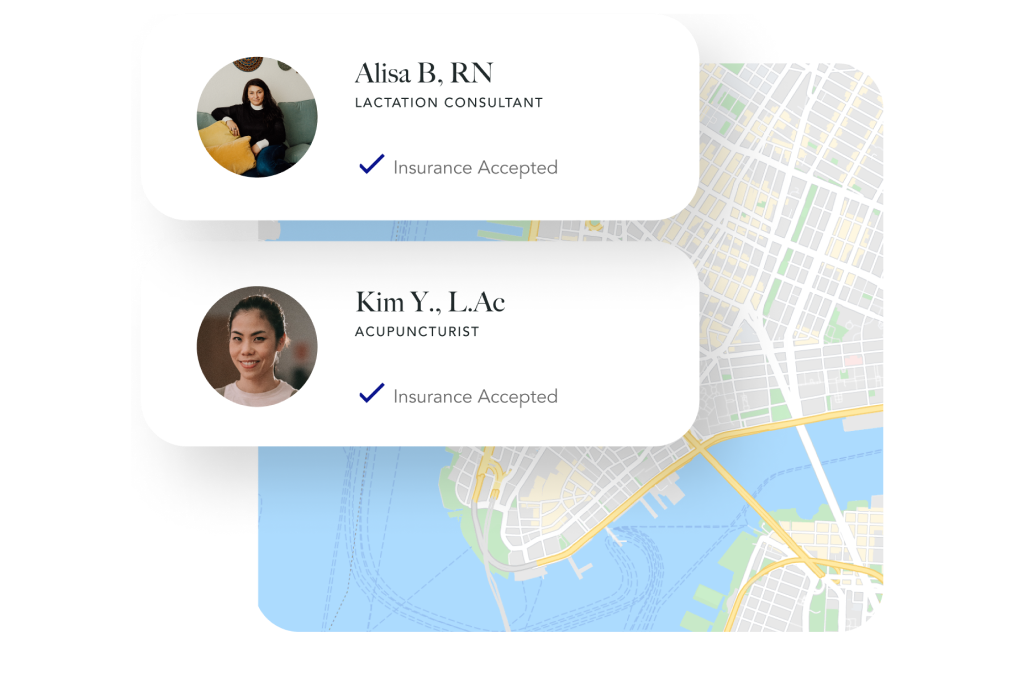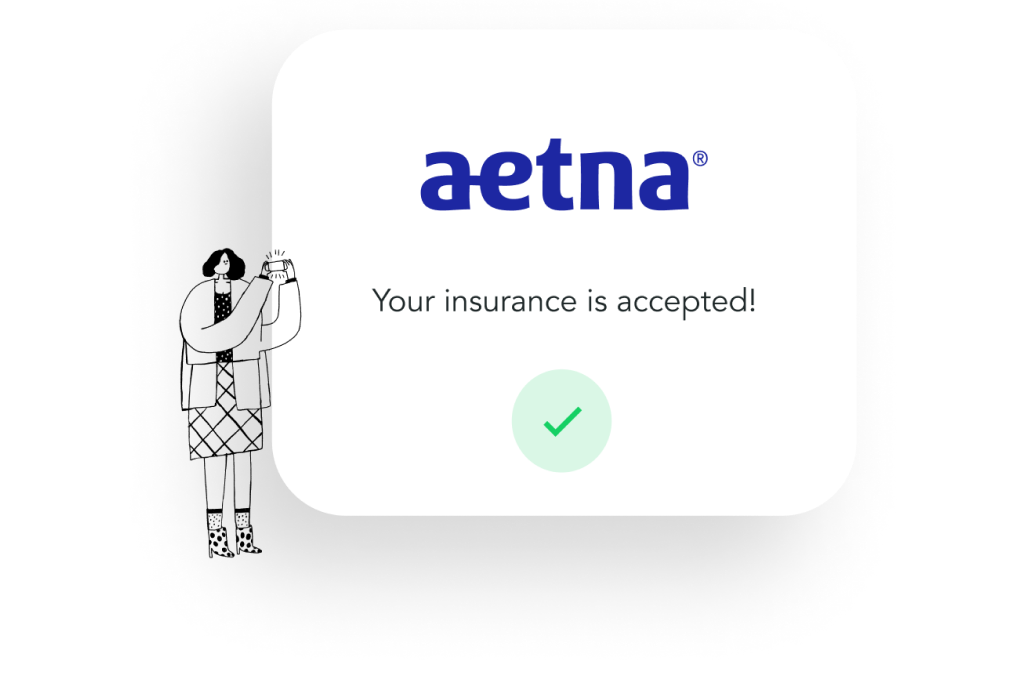
Our Specialties
Find High Blood Pressure Nutritionists Near Me
90% of Zaya patients pay $0 for one-on-one nutrition counseling with a registered dietitian.
Find A High Blood Pressure Nutritionist Near MeBrowse our directory of high blood pressure nutritionists — and book your visit online using your insurance.

Find the right care for you.

Pay with your insurance.

Book your visit online.
Get a provider who gets you.
Our providers are nutrition experts and take the time to get to know you and your needs.
Real talk from real patients.
Have questions? We’ve got answers.
For more information about how Zaya works, check out our frequently asked questions.
View FAQsMore about high blood pressure & our high blood pressure nutritionists
What is high blood pressure?
High blood pressure, also known as hypertension, is characterized by elevated blood pressure levels in the arteries. This increased pressure places strain on the heart and blood vessels, potentially leading to various health complications.
High blood pressure is commonly called the “silent killer” because it typically has no noticeable symptoms. However, it significantly increases the risk of heart disease, stroke, kidney disease, and other cardiovascular problems.
The American College of Cardiology and the American Heart Association divide blood pressure into four general categories. Ideal blood pressure is categorized as normal.
- Normal blood pressure. Blood pressure is 120/80 mm Hg or lower.
- Elevated blood pressure. The top number ranges from 120 to 129 mm Hg and the bottom number is below, not above, 80 mm Hg.
- Stage 1 hypertension. The top number ranges from 130 to 139 mm Hg and the bottom number is between 80 and 89 mm Hg.
- Stage 2 hypertension. The top number is 140 mm Hg or higher or the bottom number is 90 mm Hg or higher.
Lifestyle factors, such as an unhealthy diet, lack of physical activity, smoking, and excessive alcohol consumption, can contribute to the development of high blood pressure. According to the Centers for Disease Control and Prevention (CDC), nearly half of adults in the U.S. have hypertension.
It is important to monitor blood pressure regularly, make lifestyle modifications, and work closely with healthcare professionals to manage high blood pressure and reduce the risk of associated complications.
What causes high blood pressure?
The development of high blood pressure typically occurs gradually over time. It can be attributed to various factors, including:
- Unhealthy lifestyle choices. Not engaging in regular physical activity, having a sedentary lifestyle, consuming a diet high in sodium and low in potassium, and excessive alcohol consumption can contribute to high blood pressure.
- Health conditions. Certain underlying medical conditions like diabetes, obesity, kidney disease, and sleep apnea can increase the risk of developing high blood pressure.
- Pregnancy-induced hypertension. High blood pressure can occur during pregnancy, commonly known as gestational hypertension or preeclampsia.
What are the symptoms of high blood pressure?
High blood pressure, also known as hypertension, often presents as a silent condition without noticeable symptoms. However, persistent high blood pressure can lead to severe health complications. Some symptoms and signs associated with high blood pressure include:
- Headaches. Recurrent headaches, particularly at the back of the head, can be an indication of high blood pressure.
- Shortness of breath. Breathlessness or difficulty breathing, especially during physical exertion, can be linked to high blood pressure.
- Chest pain. Persistent chest discomfort or chest pain may occur due to hypertension-related heart problems.
- Dizziness. Feeling lightheaded, dizzy, or experiencing episodes of fainting can be associated with high blood pressure.
- Visual changes. Blurred vision or vision impairment can be a result of hypertension affecting the blood vessels in the eyes.
- Fatigue. Persistent fatigue, weakness, or general malaise may be indicative of high blood pressure complications.
- Irregular heartbeat. Hypertension can cause irregularities in the heart’s rhythm leading to palpitations or a pounding sensation in the chest.
What are the risks of high blood pressure?
Because high blood pressure is a common condition, it is essential to recognize the potential risks associated with leaving it untreated. Untreated high blood pressure can lead to serious and potentially life-threatening complications. Some of the risks include:
- Cardiovascular diseases. High blood pressure can damage the arteries and increase the risk of heart disease, heart attacks, and strokes.
- Kidney damage. Untreated hypertension can impair kidney function and contribute to chronic kidney disease.
- Vision problems. Prolonged high blood pressure can affect the blood vessels in the eyes leading to vision impairment or even vision loss.
- Aneurysm. The constant pressure of high blood pressure can cause the weakened areas of blood vessels to bulge and potentially rupture, resulting in an aneurysm.
- Heart failure. Untreated hypertension can strain the heart leading to its inability to pump blood efficiently and ultimately, resulting in heart failure.
- Metabolic syndrome. High blood pressure is often associated with other metabolic conditions such as obesity, high cholesterol, and diabetes, collectively known as metabolic syndrome.
- Cognitive decline. Chronic hypertension can increase the risk of cognitive impairment and dementia including Alzheimer’s disease.
When to see a nutritionist specializing in high blood pressure
Maintaining a healthy diet plays a crucial role in managing high blood pressure. If you have been diagnosed with hypertension or have concerns about your blood pressure levels, seeking the expertise of a nutritionist specializing in high blood pressure can be beneficial.
These professionals possess in-depth knowledge of dietary strategies to help control and reduce high blood pressure. Here are some indications for considering collaboration with a nutritionist specializing in high blood pressure:
- Diagnosis of hypertension. If you have recently been diagnosed with high blood pressure, a nutritionist can assist you in developing a personalized dietary plan to manage your condition effectively.
- Desire to lower blood pressure naturally. If you prefer to explore natural approaches to reduce blood pressure or complement your existing treatment plan, a nutritionist can guide you in making appropriate dietary changes.
- Difficulty implementing dietary changes. If you find it challenging to adopt a blood pressure-friendly diet or need practical tips for meal planning and grocery shopping, a nutritionist can provide valuable support and resources.
- Coexisting health conditions. If you have other health conditions that require special consideration in your diet, such as diabetes or obesity, a nutritionist can help develop a comprehensive plan to address multiple health concerns simultaneously.
- Medication management. If you are taking medication for high blood pressure, a nutritionist can assist in ensuring that your diet is aligned with your medication regimen and minimize potential interactions or side effects.
How Zaya Care’s nutritionists specializing in high blood pressure can help
When working with a nutritionist specializing in high blood pressure, individuals can expect personalized and comprehensive support to manage their condition and improve their overall health.
During the first appointment, the nutritionist assesses medical history, diet, and lifestyle, addressing concerns and discussing goals, preferences, and nutrition’s impact on blood pressure.
During follow-up appointments, the nutritionist will monitor progress and make adjustments to the nutrition plan as needed. They will provide guidance on meal planning, portion control, and nutrient balance, helping individuals make healthier food choices to support their heart health.
The nutritionist may also address any challenges faced, offering strategies to overcome them. They will emphasize the importance of reducing sodium intake, increasing consumption of fruits and vegetables, whole grains, and lean proteins, and adopting a heart-healthy eating pattern.
In addition to dietary recommendations, nutritionists specializing in high blood pressure provide education and resources to help individuals better understand their condition and make informed choices.
They may offer strategies to manage stress, promote physical activity, and incorporate other lifestyle modifications that contribute to overall cardiovascular health. The nutritionist serves as a supportive partner, empowering individuals to take control of their health.
Benefits of working with a Zaya Care nutritionist specializing in high blood pressure
At Zaya Care, our nutritionists specializing in high blood pressure are dedicated to helping you improve your health through personalized and evidence-based nutrition guidance. When you choose to work with our team, you’ll experience benefits tailored to your specific needs.
Our dietitians possess extensive expertise in managing high blood pressure through diet and nutrition. They stay up to date with the latest research and recommendations in the field, ensuring that you receive accurate and effective advice.
Your nutritionist will be your trusted partner in your health journey. They will provide ongoing support, motivation, and accountability to help you stay on track with your dietary changes. Whether it’s meal planning or navigating social situations, they will be there to assist.
Our nutritionists take a comprehensive approach to health, considering not only your high blood pressure but also any other health conditions or goals you may have. They will help you make informed choices that promote overall well-being and optimize your cardiovascular health.
Working with a Zaya Care nutritionist specializing in high blood pressure empowers you to take control of your nutrition and make positive changes for your health.




